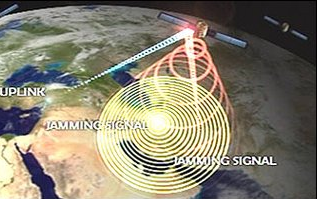Russia Clamps Down Further on U.S. International Media

Russian
President Vladimir Putin, right, visits the headquarters of “Russia
Today” TV channel in Moscow, Russia, (AP Photo/Yuri Kochetkov, Pool)
The Broadcasting Board of Governors has condemned a recent decision
by Russian authorities to cut off all remaining radio transmissions by
U.S. international media in Russia.
In a one-sentence letter dated March 21, Dmitry Kiselev, the director of the information agency
Rossiya Segodnya
(Russia Today), stated that “we are not going to cooperate” with the
BBG’s request to continue a long-standing contract for broadcasting on
Russian soil. Effective at the end of March, this decision removes the
last vestige of Voice of America programming – including news in
Russian and English-language lessons – from a local frequency in Moscow
(810 AM).
“Moscow has chosen to do the wrong thing and restrict free speech,”
said BBG Chairman Jeff Shell. “This is a fundamental value shared by
many countries around the world. The BBG will continue to reach
audiences in Russia through digital platforms and via satellite
transmissions.”
Distribution of VOA and RFE/RL programming in Russia reached a high
point in 2005, when VOA Russian programming was distributed on a
nationwide television network and both VOA and RFE/RL had extensive
partnerships with domestic Russian radio stations. But starting in that
year, the Russian government turned greater attention to these stations
and asked them all to re-apply for their licenses. And beginning in
2006, by denying the licenses of the stations that re-applied and
intimidating the others, Russian authorities systematically eliminated
domestic radio distribution of BBG-supported programs and almost all
television distribution. In 2012, Russian authorities forced RFE/RL off
its last remaining domestic radio outlet, an AM frequency in Moscow.
“We urge Mr. Kiselev and other Russian authorities to open Russian
airwaves to more of our programs and those of other international
broadcasters,” Shell added. “We’re asking for an even playing field: As
Moscow’s media crackdown deepens, Russian media – including RT
television – enjoy open access to the airwaves in the United States and
around the world. The Russian people deserve the same freedom to access
information.”
Kiselev, known for his strident anti-Western and homophobic views on
Russian state television, was appointed in December 2013 to lead Russia
Today. At the same time the Voice of Russia and the RIA Novosti news
agency were merged into Russia Today.
The move also comes amid a fast-moving campaign to target opposition
and independent media. Lists of “traitors” have been circulating in
Moscow, and pro-Kremlin analyst Sergei Markov recently added RFE/RL’s
Russian Service, Radio Liberty to his “list of traitors” on Facebook. In
the same vein,
politonline.ru, a part of the
Pravda.ru
media holding, has created Russia’s first top-20 list of the most
“anti-Russian” news outlets. This list, which places Radio Liberty
sixth, is being shared by influential Russian political advisors such as
Alexander Dugin, who wrote on his Facebook page that “this is the order
in which Russia’s most contemptible media outlets will be closed or
blocked.”
Russians are
increasingly turning to the Internet and social media
for their news. VOA’s digital strategy incorporates content across
platforms. In addition to live interactives with domestic television
channels, such as Russian Business Channel, VOA’s web-TV show, Podelis,
allows users to connect and engage with the content in real time using
social media.
Podelis, which means “share” in Russian, provides a unique opportunity
to engage in discussions about current events, Russian politics and
U.S.-Russia relations. VOA’s social media following in Russia has grown
significantly and visits to
VOA’s website have doubled every year since 2008.
Radio Free Europe/Radio Liberty’s Russian Service provides 24 hours of radio programming via the Internet and satellite, a
website that was visited more than 6.5 million times in March, and a strong presence on social media such as
Facebook and
Twitter.
RFE/RL has started a multi-hour, daily video stream for Russia
consisting of coverage of the most important events with reactions from
Russian citizens as well as opinions from the West. The stream also
includes live roundtable discussions and expert interviews on Russia.
[Note: This statement has been corrected to remove a comment that RT television is under Mr. Kiselev’s authority.]

